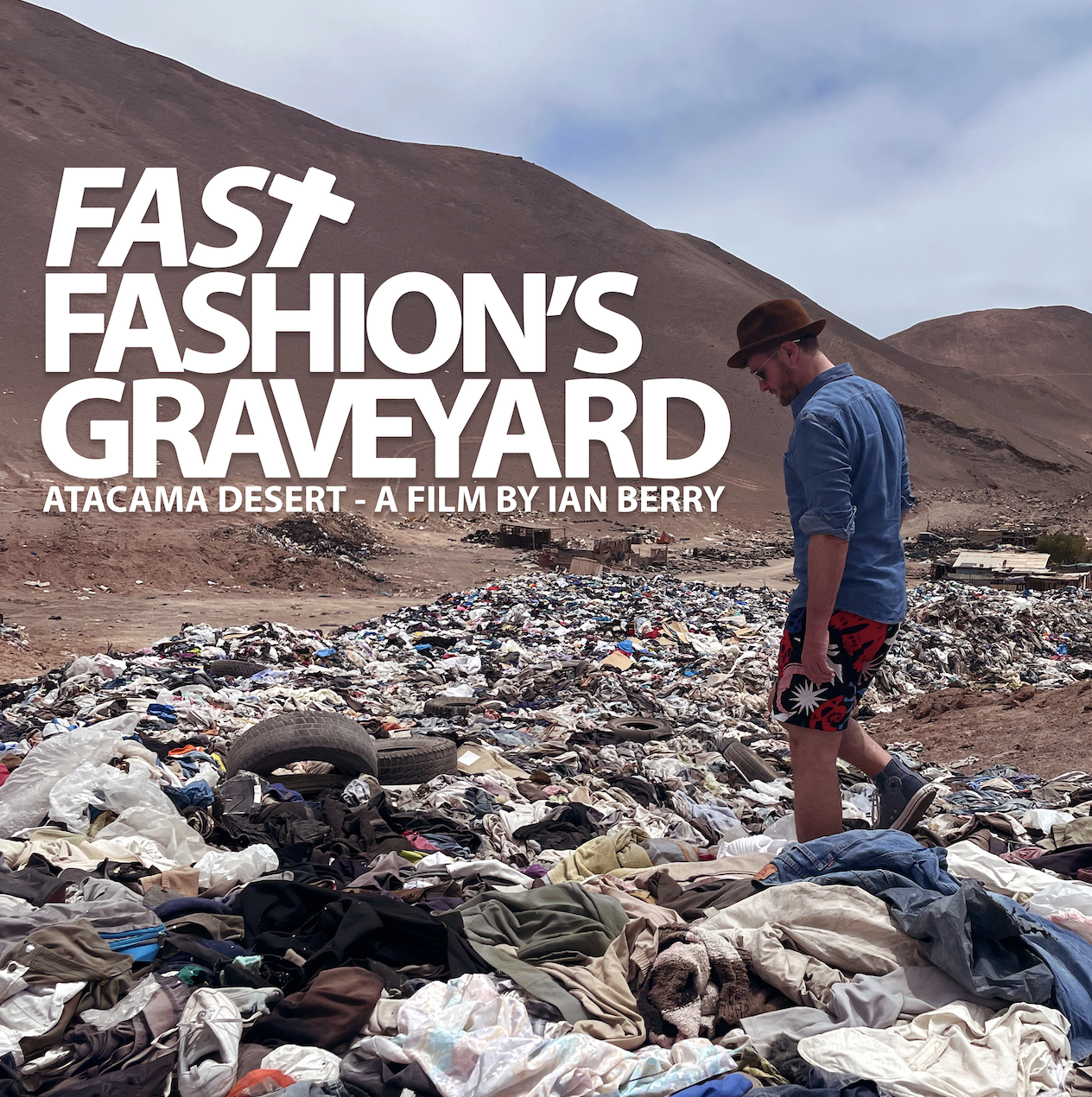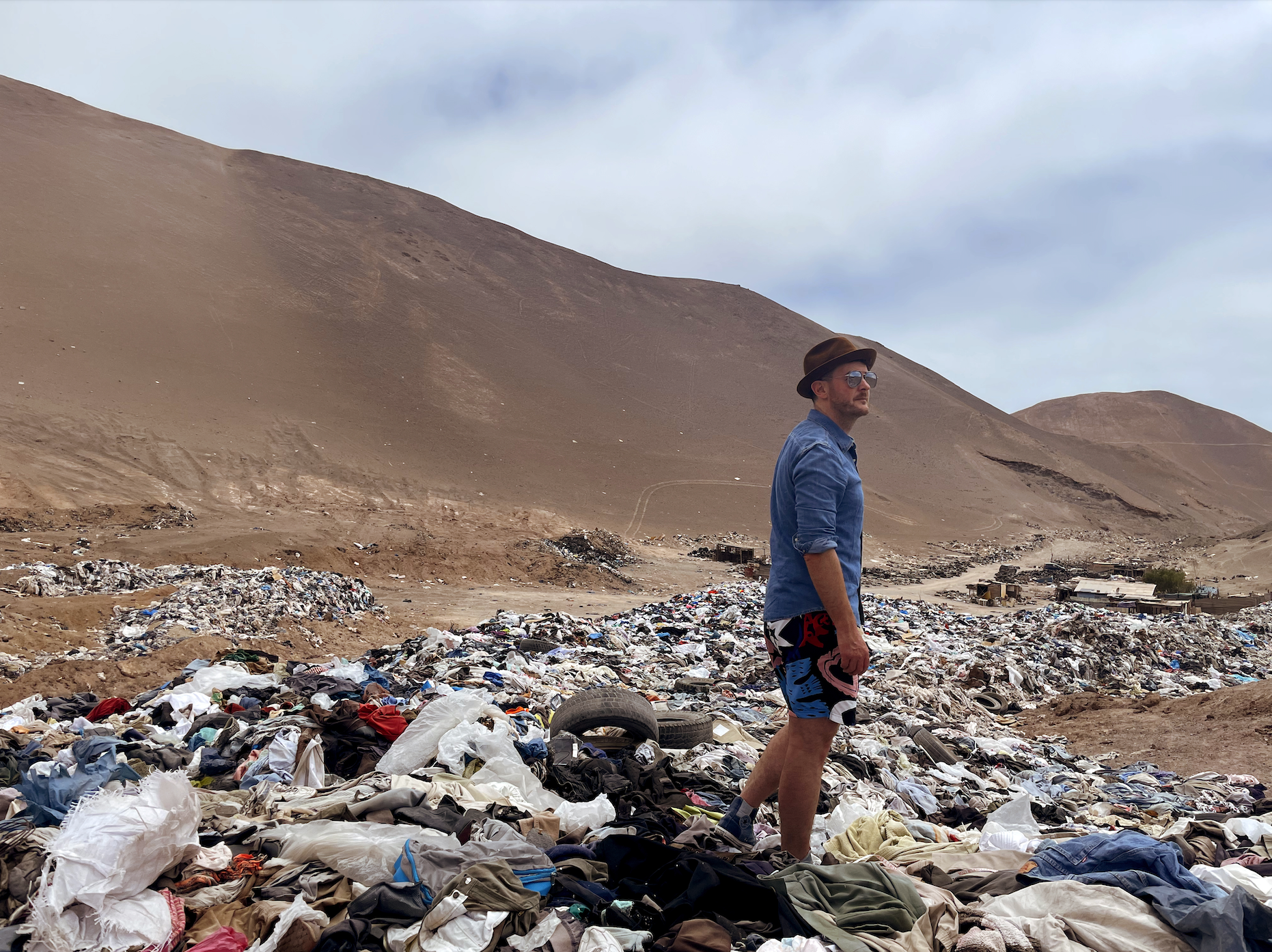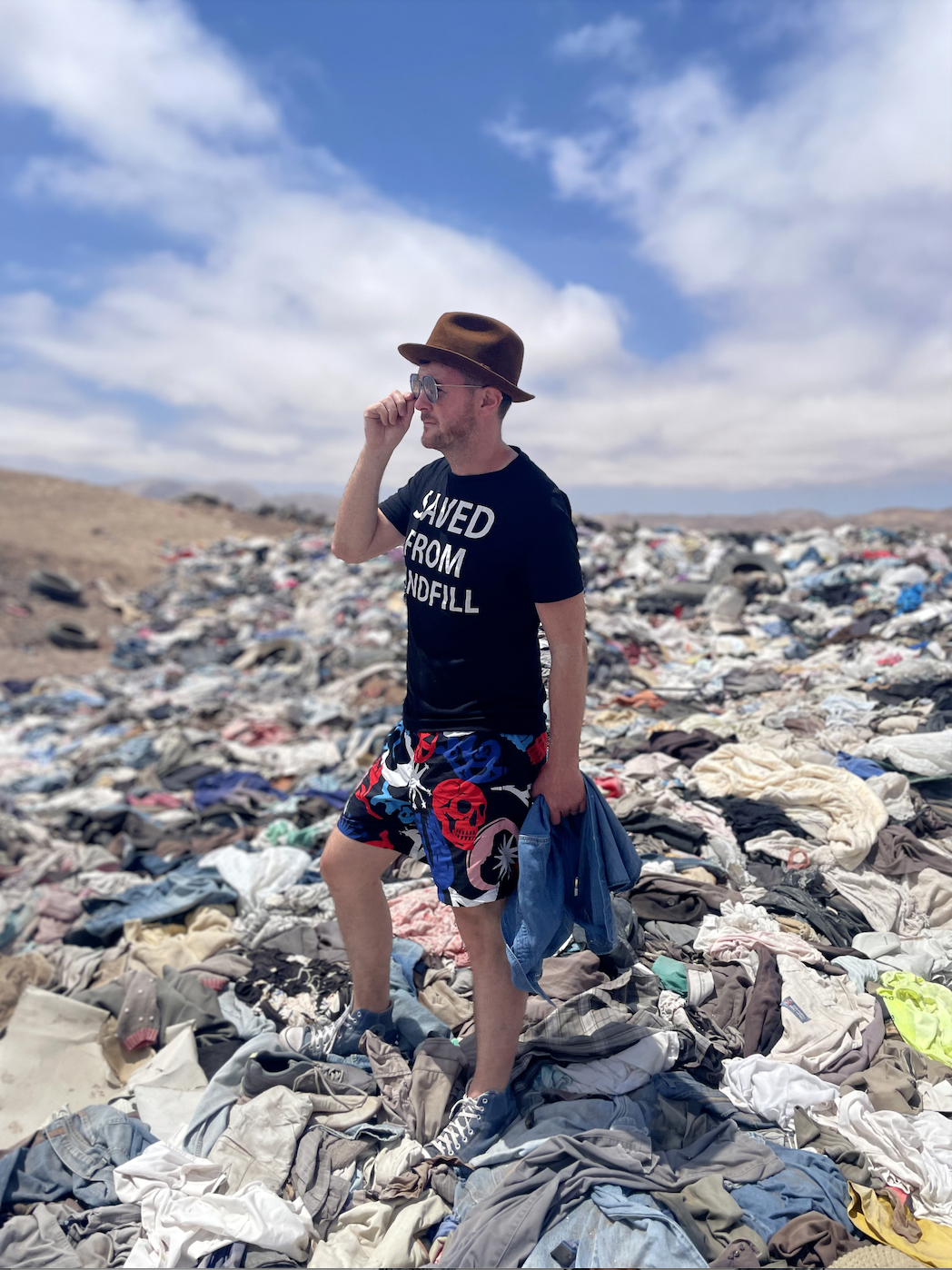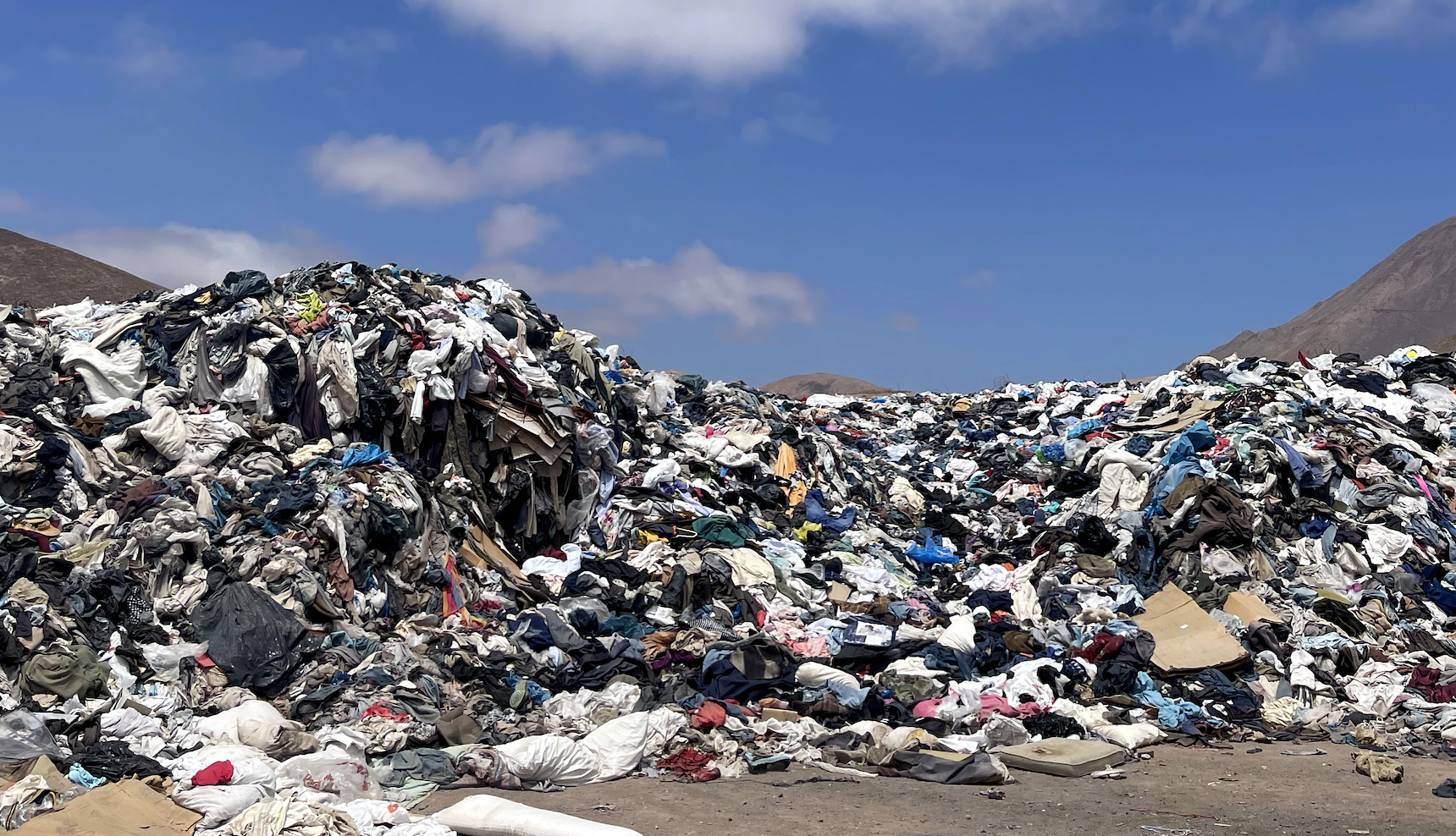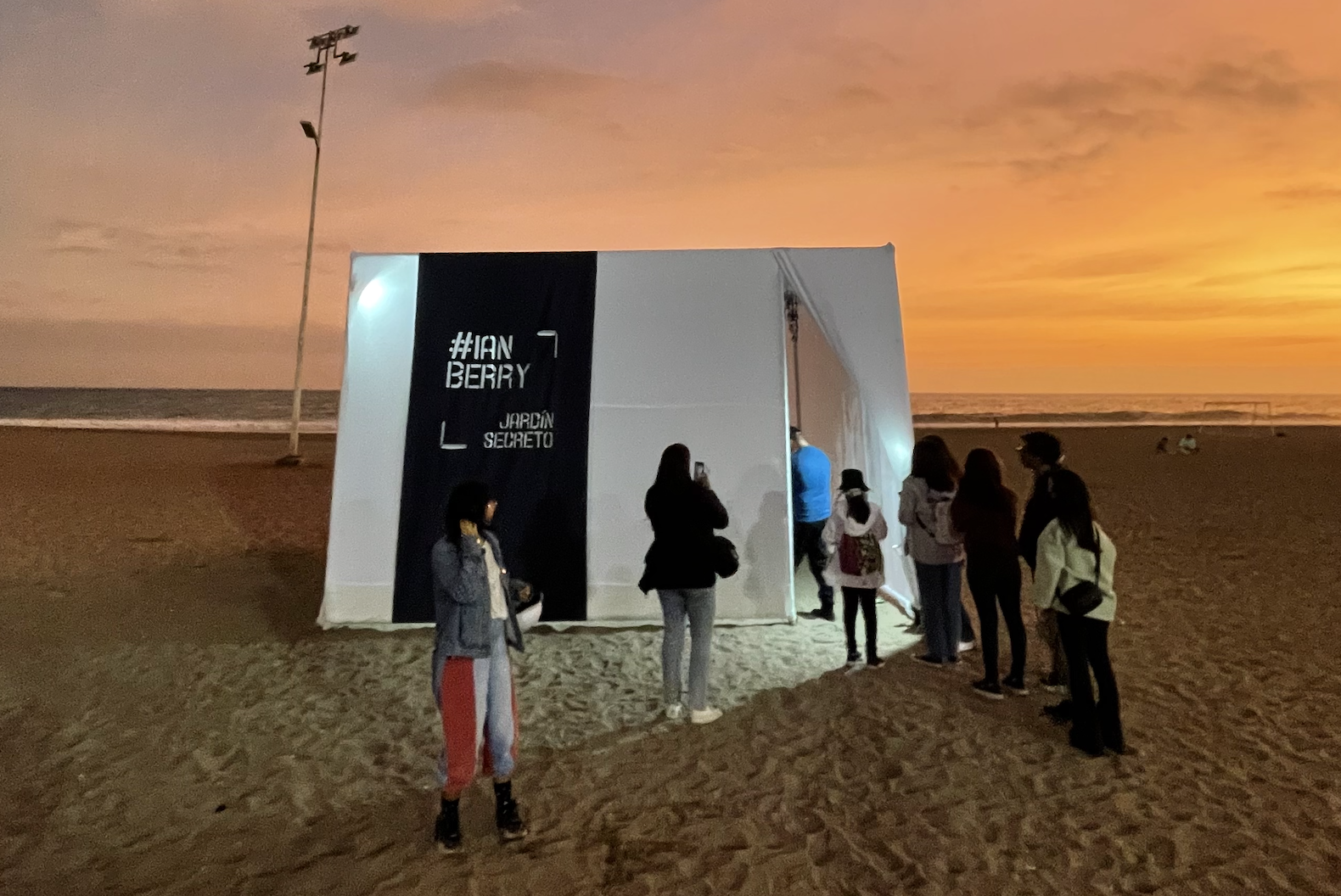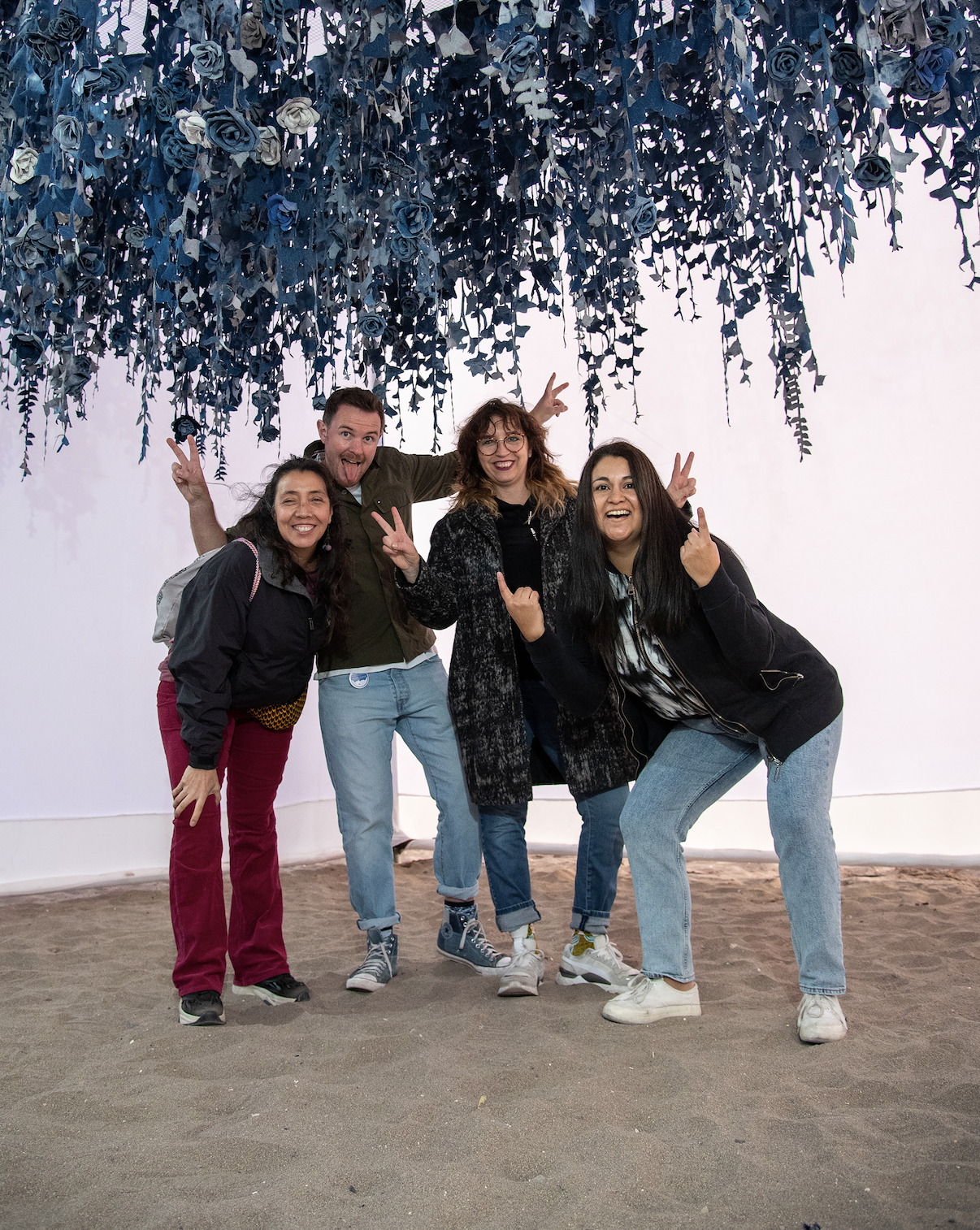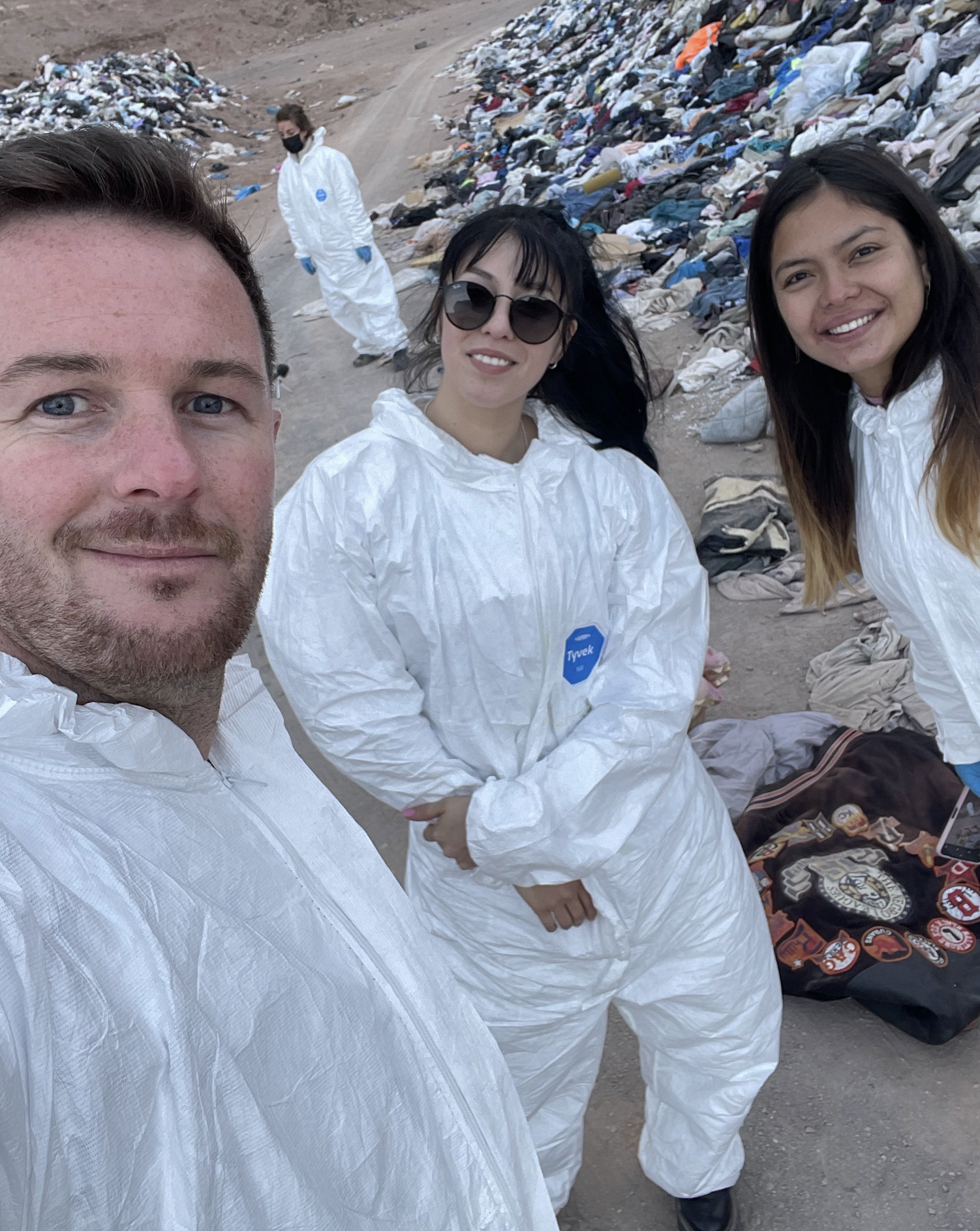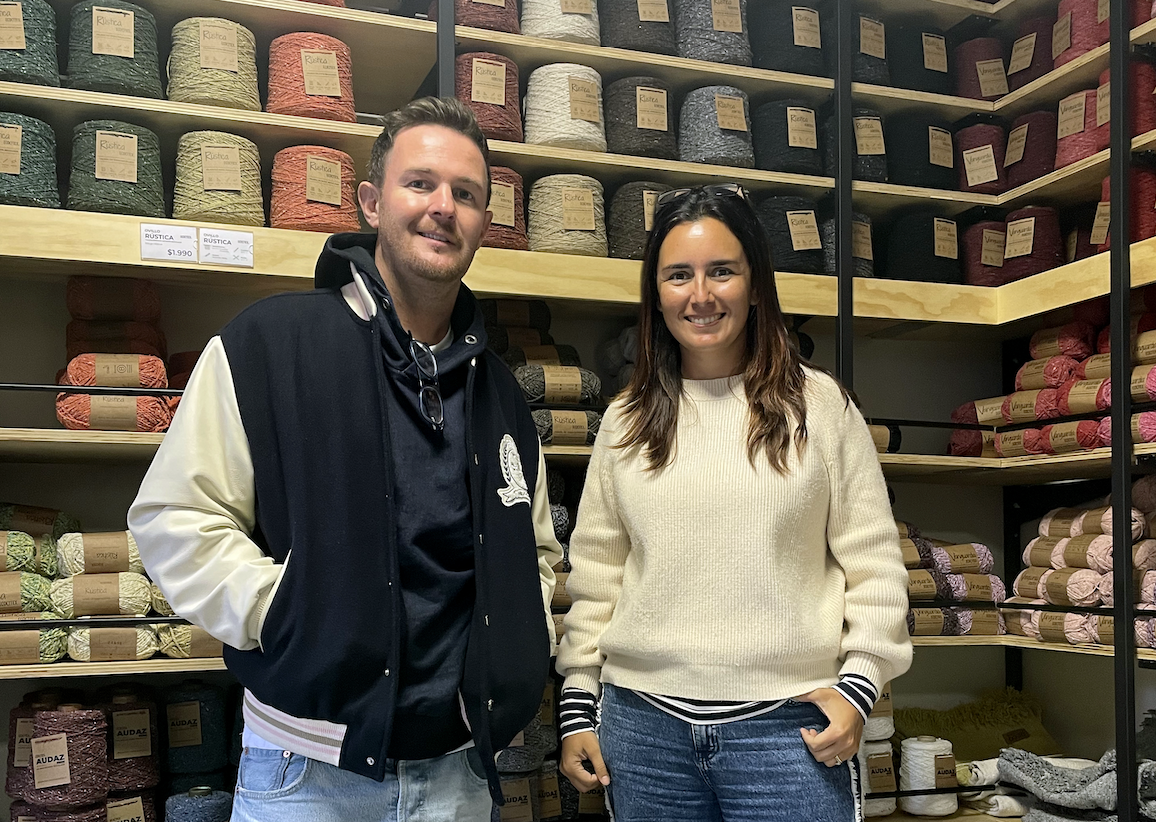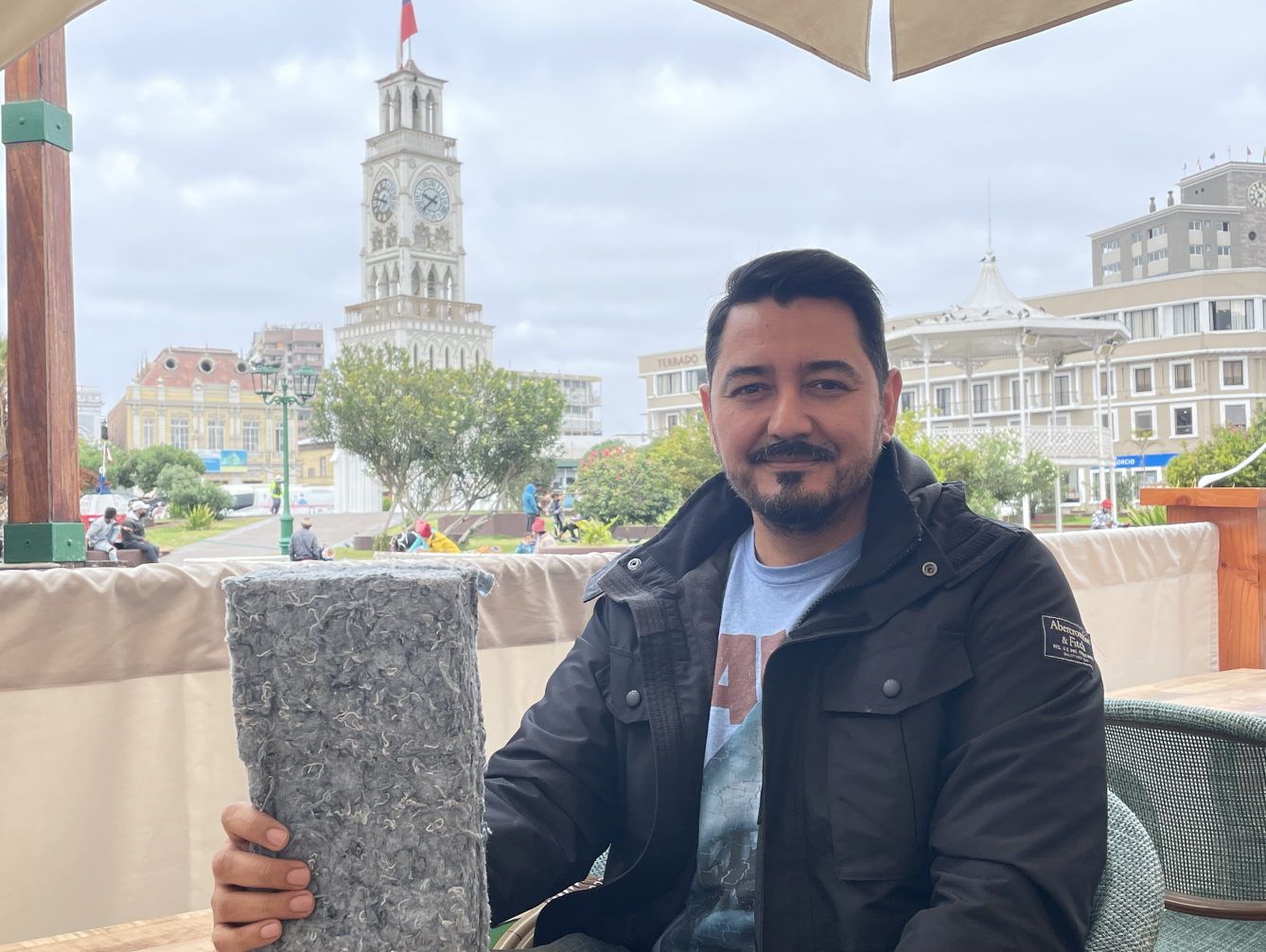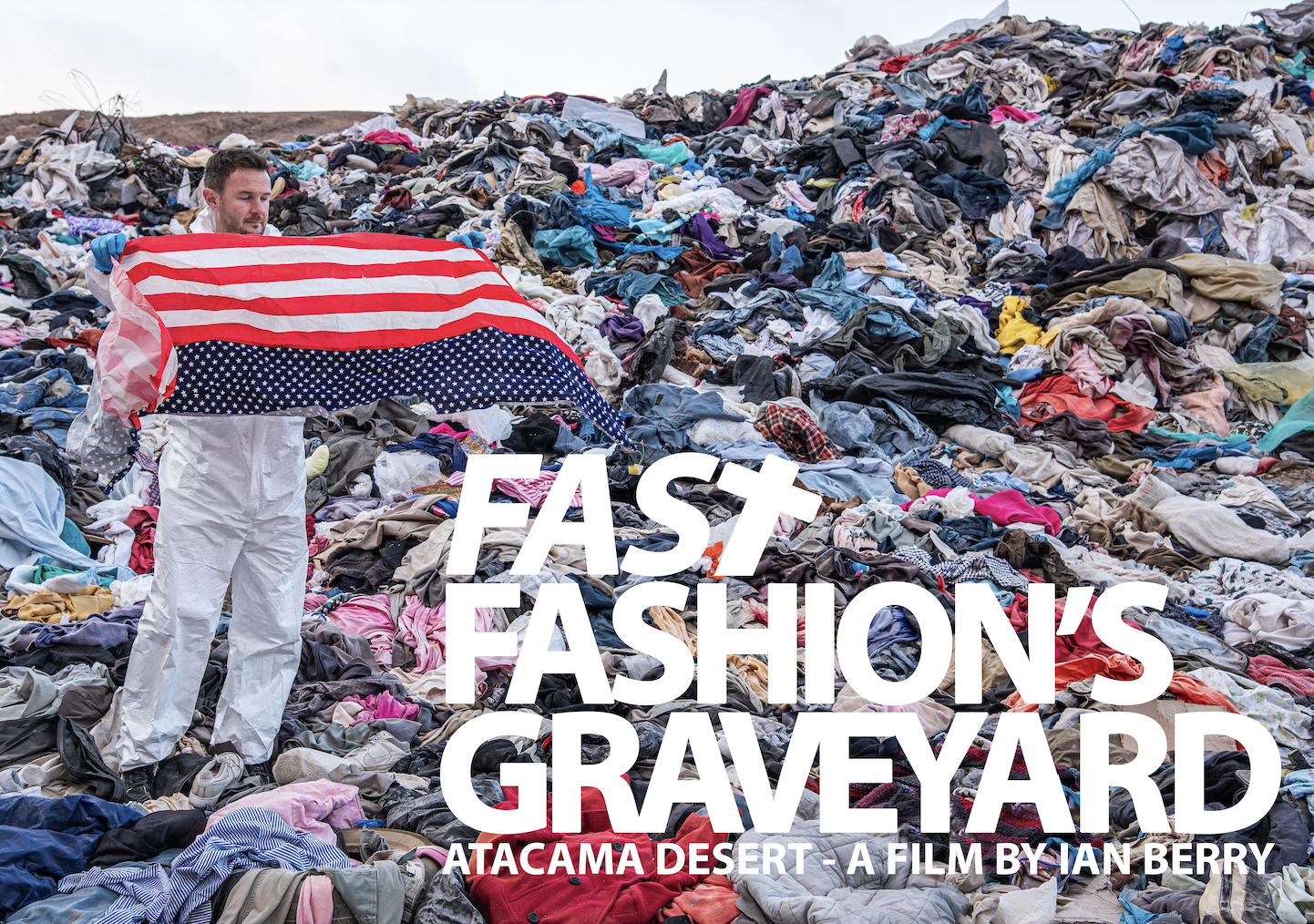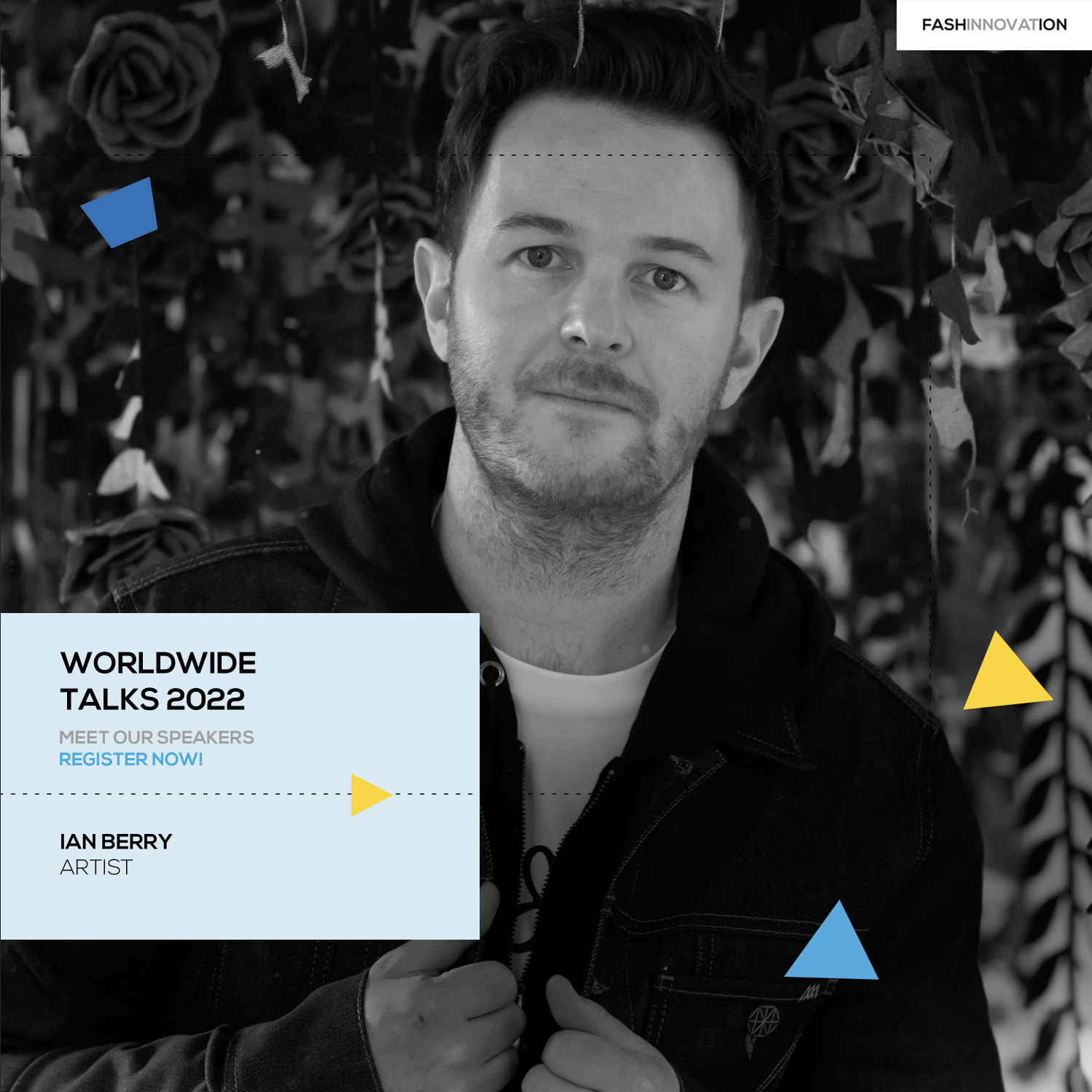Fast Fashion’s Graveyard
A documentary film by Ian Berry - COMING SOON
- Artist Ian Berry makes a documentary about the clothes waste in the Atacama Desert in Chile named Fast Fashion’s Graveyard
- A three-minute trailer will preview in New York with Fashinnovation on 7th Sept – where Ian Berry will be interviewed by Christopher Blomquist, Rivet Journalist and Professor of Fashion Journalism at Parsons School of Design
Ian Berry in the Atacama Desert in Chile
British Artist Ian Berry, 38, has often been linked with sustainability over the years but it’s a word he has never tried to use with his art made from recycled jeans ‘It was a side show of my work, but not the concept’. That seems to have changed after he witnessed the direct impact of overproduction of garments and the clothes mountains discarded in Chile.
‘Sustainability is an overused and abused marketing word which has as much worth as the word ‘nice’. I felt a fraud to use it, besides, I’m not making a big difference, nor had it been the concept or point of my work. I have been doing my work for longer than it became such a buzz word. Perhaps I’m just jaded by knowing too many people abusing it’
Earlier in the year however he found himself in the country’s capital, Santiago, having created the portraits of three of Chile’s most popular musicians which were then presented at Lollapalooza. In between some events he had some free time and he was offered a trip away. He’d seen the clothes dump in the Atacama Desert outside Iquique in Alto Hospicio that had just gone viral and was seen on the likes of BBC and DW. Snubbing much more obvious travel destinations he opted to visit the northern coastal city, known as the driest on the planet.
Seeing the piles of jeans in his East London studio it’s hard to not see the comparison with what he saw in the barren desert.
‘While I may not talk about sustainably much, leaving it to those who either know better, or can profit from it, it doesn’t mean I don’t care about the core issues. Few know that I nearly went back to university in 2006 to study climate change after watching An Inconvenient Truth by Al Gore, but while I was recycling denim, I will be honest, I never even connected that I was doing anything linked at the time.’
Piles of clothes in the Atacama Desert in Chile. Photo Ian Berry
He has now returned to the South American Country twice more, both linked to ongoing projects as well as trying to find out more about what is going on and why many of our old clothes ended up in Chile, unwanted and left to rot. While he will soon preview his documentary ‘Fast Fashion’s Graveyard’ he will openly admit he is not a documentary maker and on the first trip it happened quite naturally. ‘I was taken aback by being there and just started to make little videos with my iPhone. I hadn’t intended to make a documentary and it’s been quite a learning curve.’
‘I’d researched it a lot before I first went but when there I had so many questions, many that people couldn’t answer. I also realised that there were very few people, if anyone, from outside South America that had ever gone there and when it had gone viral it was all from one person’s footage (who had himself done great work), but then the reporters had never been. While I don’t think it was on purpose, the reporting led to a misrepresented story of what was going on and who was responsible, mainly letting the viewer believe the brands were directly dumping their clothes there. It’s much more complex, and I had to return to find out more.’
Ian Berry in the Atacama Desert witnessing himself the clothes waste piled up
Agence France-Presse,’s research found that about 59,000 tons of clothing that wasn’t sold in Europe or the USA end up at the Freeport of Iquique every year, but what’s surprising is a whopping percentage of that, at least 39,000 tons are moved into landfills in the desert typified by the one Ian Berry visited in Alto Hospicio the country’s poorest area.
‘Like everything in contemporary times we debate on headlines and there’s little nuance. I wanted to look into the story to find the truth, but also I’d seen it talked about many places yet with few solutions or positive messages of what people are doing, or what people can do.’
Ian Berry showed an installation on the beach in Iquique with Studio of…
On Berry’s second visit he worked with Estudio of.. in Iquique. A collective of creatives and artisans who have been working with recycled textiles and most proudly sporting second hand clothes. They grouped together to help Ian Berry make flowers for a recreation of his Secret Garden installation that was then displayed on the beach in the city during the Festival Desierto Sonoro with thousands of people passing through.
Ian Berry with some of Studio of…
Ian Berry with Desierto Vestido
One member of the collective that worked with Berry was Angela Astudillo, who is also a part of Desierto Vestido who have been investigating this for a while now. She lives close by the dump and has visited many times and she went with Ian Berry when he returned and helped him with many of the facts. She has documented much of what has been going on. While he started with an iPhone, on the second trip Berry had a more professional kit supported by Audiovisual Iquique who, with drones, were able to capture the scale.
Astudillo was also able to introduce the artist to the people that live on the site which enabled him to ask direct questions of what is going on and why.
Ian Berry with Rosario Hevia of Ecocitex in Santiago, Chile looking at her recycled yarn
Frank Zepeda of Ecofibre Chile in Iquique with Ian Berry
For Berry it was important to find positive stories and to share them. Highlights were meeting with Franklin Zepeda of Eco Fibra who transforms the textile waste into insulation panels for low cost housing and as a native of Alto Hospicio could tell Berry much of what had been happening. Gonzalo Muñoz who was nominated by the Chilean presidency and the United Nations as the High-Level Climate Champion for the twenty-fifth Conference of the Parties (COP25) to the United Nations Climate Change Convention (UNFCCC). Prior to this role, he co-founded and ran TriCiclos, one of the most recognized Latin American companies in the circular economy and recycling. The company was also the first certified B corporation established outside North America.
Ian Berry met with Rosario Hevia twice, in Santiago who passionately spoke about the issues as well as showing Ian around her factory where her brand Ecocitex is a social enterprise that sells 100% recycled textile products through more than 250 women-led businesses across Chile.
The documentary shows Berry visiting the Freeport locations and Zofri, the area where the clothes are brought in in bundles and sold, under much secrecy. While the imports had been portrayed as a bad thing, he also visited resellers in Santiago as well as second hand stores that sell good second-hand clothes making them affordable for many Chileans and of course making the clothes life span longer.
In his research Ian Berry also found he had jumped the gun a little, ‘The name already can give a misconception’, although one part became true. Fast Fashion Graveyard. ‘Soon after I left the third time it set on fire and then it was buried, so it went from an open grave to being concealed.’ However, he questions whether it is fair it is named fast fashion as in his research he found that while many big name brands could be found, they are not the ones that he thinks fall in the fast fashion bracket.
‘I think most people watching the first wave of publicity brought on the dump blamed fast fashion and big-name brands, I went around and found that all the items were unique, as in there wasn’t batches of the same clothes. While many had labels on they were often the likes of TJ Maxx and also Goodwill. Yes, we can talk of overproduction and also our throwaway society and trends, fair is fair, but it is not the brands who are directly responsible. That said, it is their name on the labels and our clothes dumped there – often after thinking we have done a good thing in donating to a charity shop.’
A three-minute trailer will debut at Fasinnovation in New York on Sept 7 in partnership with Spring Studios - with an interview filmed live at 11.55 EST with Christopher Blomquist, Rivet Journalist and Professor of Fashion Journalism at Parsons School of Design.
Founder Jordana Guimaraes who invited Ian Berry said, ‘Ian is just extremely talented and inspiring, and I feel SO lucky to have him with us next week sharing this project and opening people’s eyes in so many ways.’
For more Information and to register
https://fashinnovation.nyc/events/worldwide-talks-2022-7th-edition/

